2024 in Review: What Makes it Memorable for Various Divisions of HSE University
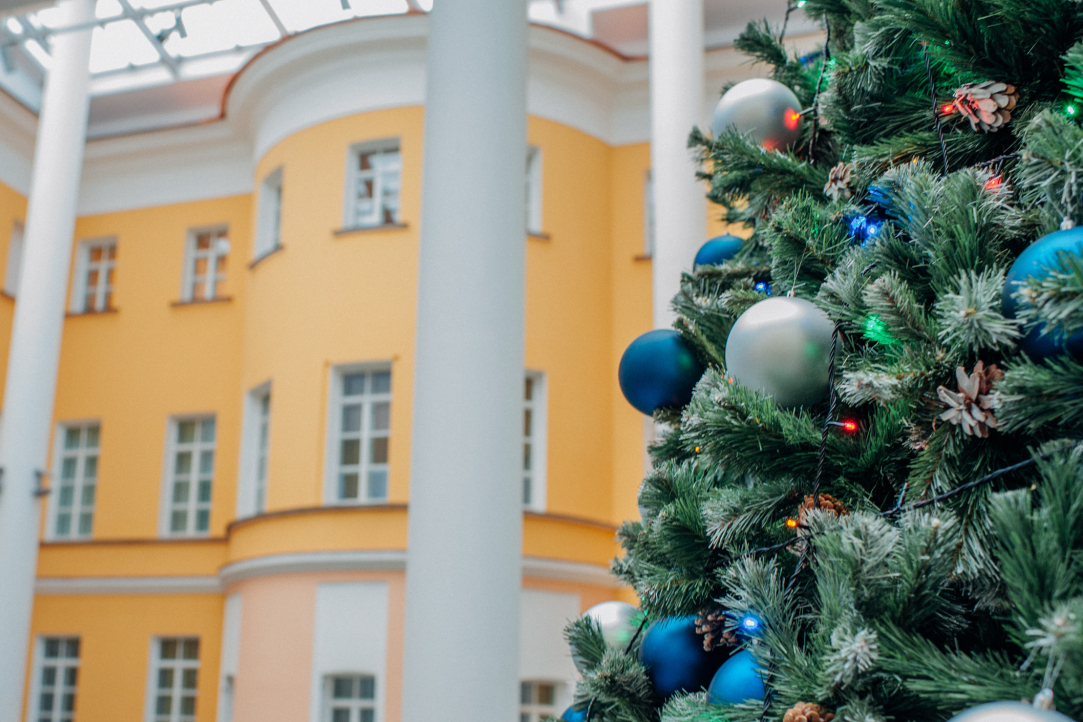
The year 2024 at HSE University saw numerous significant projects, groundbreaking research, innovative developments, strategic partnerships, and success stories across various fields of science, education, and technology. The heads of the university's various divisions share the highlights and memorable moments from the past year.

HSE Vice Rector
As always, much has been happening at our university in the field of education, and 2024 was no exception. We have accomplished a great deal: new programmes have been launched, our students have won at various competitions and olympiads, and innovative technologies have been introduced in education. However, I would highlight three key events, or more precisely, three important processes and outcomes.
In 2024, we were awarded gold in the Times Higher Education Online Learning Rankings 2024, alongside 10 other leading universities from around the world. This ranking was the first attempt to measure online learning on a global basis, and for the first time, a Russian university received such high international recognition in a prestigious academic ranking. This is not accidental, as 2,813 students enrolled in HSE University’s Online Campus in 2024, making up 13% of all first-year students at the university. The total number of students enrolled in online programmes has reached 4,712. The online campus currently offers 33 higher education programmes, 12 of which were launched for the first time in 2024.
The year 2024 was significant for the university in terms of mastering artificial intelligence technologies. A great deal was accomplished in this direction. Notably, the university's Academic Council adopted a Declaration of Ethical Principles for AI in the spring, and nearly 1,500 university staff and faculty members were trained in continuing professional development programmes focused on the application of AI tools in education, research, and administrative activities. In the near future, this will enable widespread integration of various AI tools into HSE University's educational programmes.
In 2024, HSE University developed and made available the AI Lingua solution for assessing English language proficiency. Trained on a vast amount of data using AI, this neural network assesses an individual's ability to communicate in English. In education, this is the first (but certainly not the last) product and service of this scale created at HSE University using AI technologies.
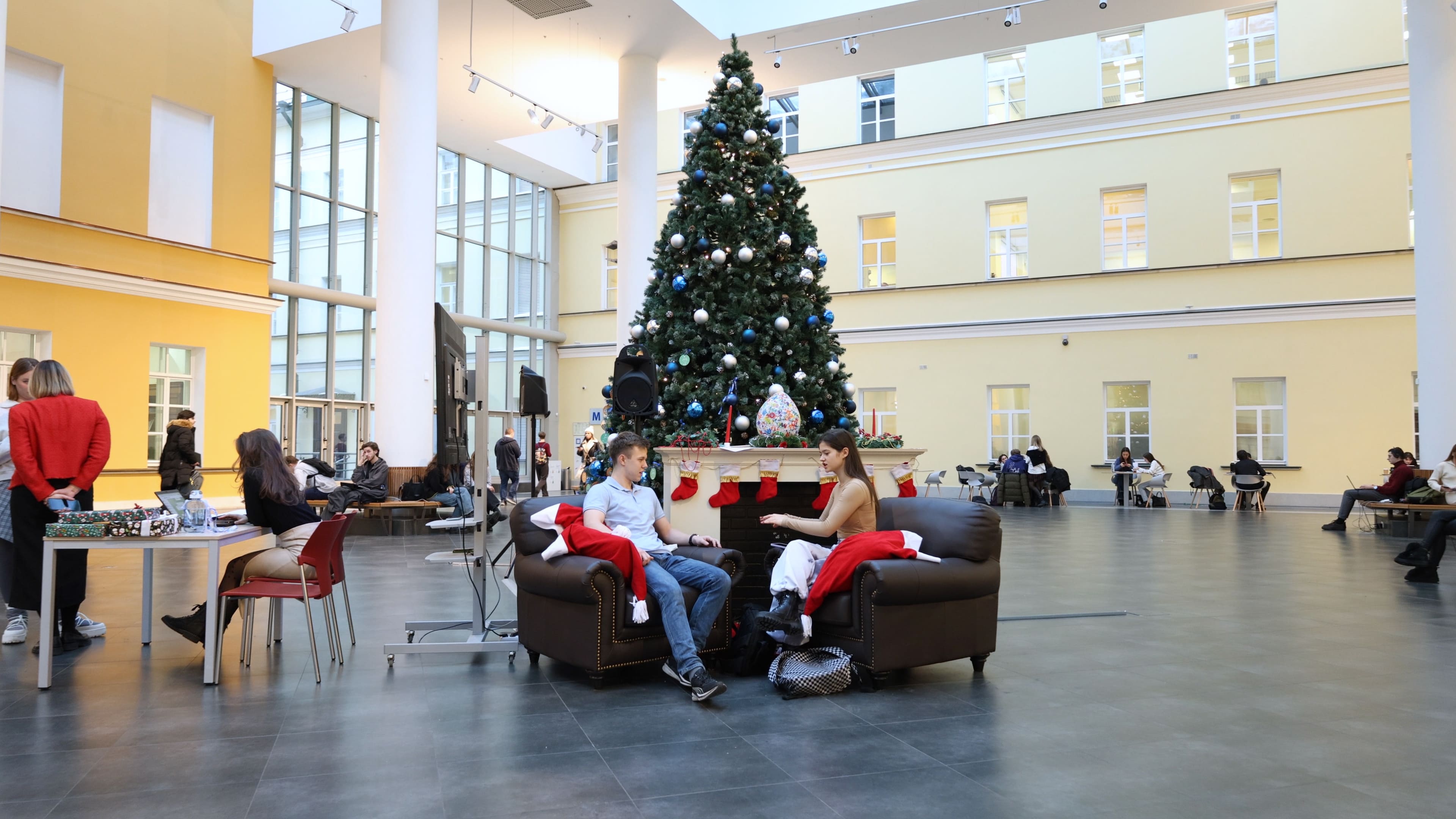

HSE Vice Rector, Head of the BRICS Expert Council–Russia
Looking back at the outgoing year 2024, it can be said that while it was challenging, it was also rich in significant achievements and notable events in the field of international cooperation. I will briefly highlight those that are particularly memorable.
In 2024, we continued to actively engage with partners from various countries, strengthening the university's position in the global academic market: we signed 77 new agreements with foreign partners, marking a 30% increase from 2023, and established cooperation with 45 new organisations. We were also actively expanding HSE University's global reach, with institutes from four new countries—Saudi Arabia, Oman, Turkmenistan, and Ethiopia—becoming our new partners.
We engaged with colleagues during our travels to foreign countries, hosted delegations from leading universities at our campus in Moscow, and organised events for them. Throughout the year, we hosted 25 official delegations from 15 countries, including Azerbaijan, Belarus, Brazil, Vietnam, India, Iran, Iraq, China, Kazakhstan, Malaysia, Mongolia, the United Arab Emirates, Uzbekistan, Chad, and Japan. In addition, we welcomed 145 foreign visitors, which enabled us to strengthen ties with over 70 countries.
Among the events organised at the HSE Campus in Moscow, a key highlight was International Partnership Day Russia-Brazil. For the first time, 17 rectors from Brazil's leading universities visited Moscow as part of the first Brazilian academic and scientific mission to Russia, marking the beginning of a new phase of cooperation between our two countries.
The number of events organised with African countries also and saw a significant increase in 2024. Ministers of Higher Education and Science and rectors of leading universities from Burkina Faso, Burundi, Niger, Mali and Guinea visited HSE University. These meetings represented an important step toward expanding academic cooperation with the African continent.
HSE University's internationalisation departments focused particularly on attracting talent from around the world and integrating international students into the academic and cultural life of the university. According to the results of the admission campaign for foreign citizens in a separate entry competition for the 2024/25 academic year, HSE University enrolled 14% more foreign applicants compared to the previous year (2,267 foreign applicants). A consistent pattern can be observed here: the number of applications for admission to HSE University has tripled compared to the same time in 2023 for both bachelor's and master's programmes. The total number of applications for admission has also increased, but at the same time, selectivity has risen, meaning that only the best of the best are coming to study at HSE University.
Throughout the year, 10 integration and adaptation events were held, attended by over 5,000 people, and the orientation event for first-year international students brought together more than 1,000 students. HSE University's presentations for potential applicants were held in 10 countries around the world, attracting a total audience of 11,000 people. We strive to be there for everyone who wants to become part of the HSE University family!
One of the most important achievements of the year was the creation of the BRICS Expert Council–Russia, which serves as the national coordinator and aims to promote the consolidation of Russian expert potential through BRICS, while also representing Russia in the Council of BRICS Expert Centres. The BRICS Expert Council–Russia, based at HSE University, was initiated by the Russian Ministry of Foreign Affairs and the Russian Ministry of Finance and established by order of the Government of the Russian Federation, pursuant to the instruction from the President of the Russian Federation.
As part of our BRICS work, we have held more than 50 events in various formats, including the BRICS Academic Forum, the BRICS Civil Forum, the BRICS International School, the HSE CS x BRICS Ideathon, the first BRICS+ Blind Football International Friendly Tournament, featuring professional teams from the BRICS nations and partner countries, as well as several round tables and other events.
The year 2024 was filled with important events that highlight HSE University's high level of international activity. We are confident that this is just the beginning. In 2025, we will have new opportunities to strengthen the university's position on the global stage and engage with our partners!
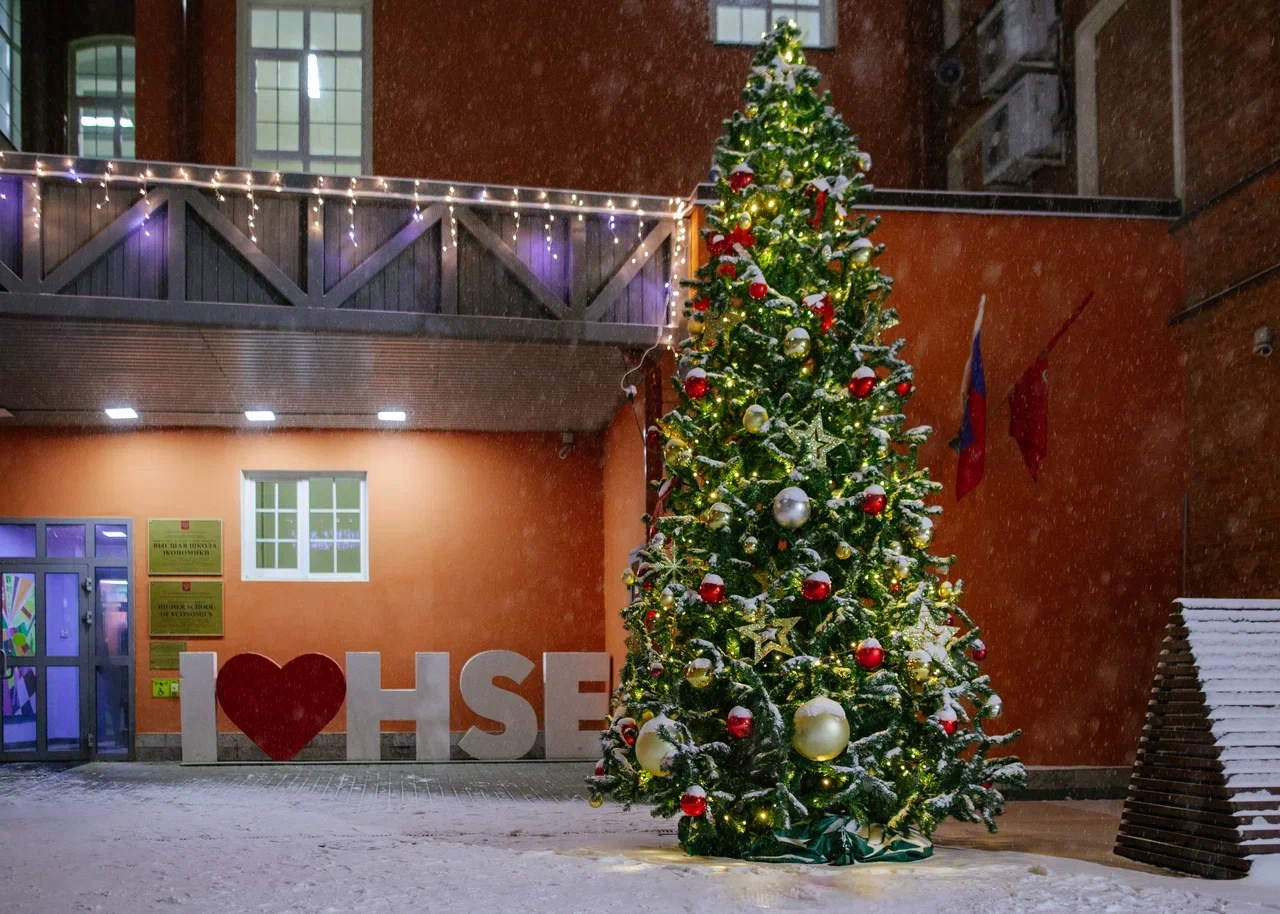
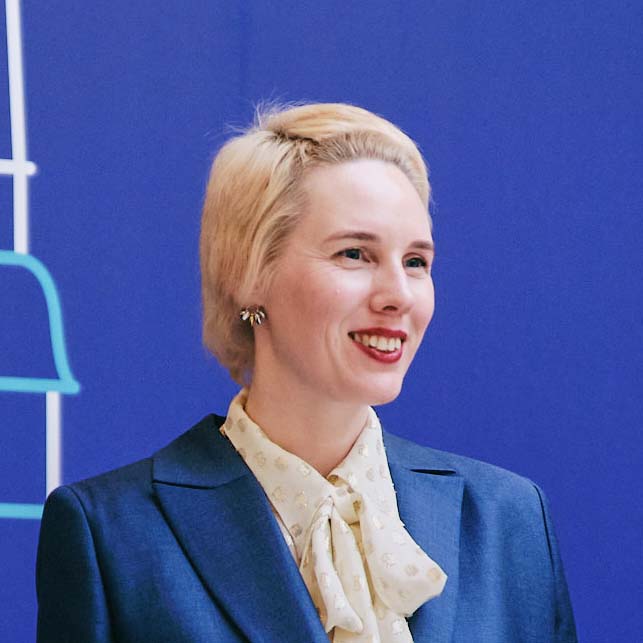
Director of the HSE Campus in St Petersburg
The HSE Campus in St Petersburg has been actively developing, and this is our key achievement in 2024. Our campus has an ambitious goal: to nearly double the number of students over the next three years. This means offering more new educational programmes, supporting more research, and providing new learning spaces. We could go into detail about last year's accomplishments, but looking ahead, it's more important to focus on our plans for 2025. And there's much to look forward to in the coming year!
In January, we will open a new building on Vasilyevsky Island that will provide a comfortable learning environment for 4,000 students. It is noteworthy that the new building will be located in the former rope workshop of the Krasny Gvozdilshchik plant—a building recognised as a masterpiece of Russian constructivism and featured in architecture textbooks worldwide. Among those studying here will be design students.
Our plans to launch new educational programmes are also tied to the expansion of our infrastructure. In 2025, the HSE Campus in St Petersburg will introduce over ten new tracks and areas of study, including telecommunications, theoretical and applied mechanics, architecture, art history, international relations, and more.
We have added new laboratories. For example, last year, 16 teams from the St Petersburg campus applied for support through a university-wide competition to establish research and study groups, and half of the applications were awarded, which is unprecedented in itself. Additionally, four more applications received support from our Academic Development Fund, based on the decision of the campus's Academic Council. This means that in 2025, thanks to the newly launched research and study groups, we will have 50 additional early-career researchers.

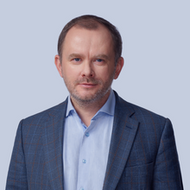
Dean of the HSE Faculty of Computer Science
The year 2024 marked the tenth anniversary of our faculty. This is an important milestone, a time to look back and reflect on how the Faculty of Computer Science has evolved over the years and what has been achieved.
In 2014, we started with two bachelor's and one master's programmes, two joint departments, and two laboratories. Today, we offer six bachelor's programmes and 15 master's programmes, five of which are delivered entirely online. Additionally, we have five joint departments with academic institutes, five joint departments with industry partners, 19 laboratories, and more than 30 CPD programmes. The number of students enrolled in degree programmes has surpassed 5,200 this year. This is indeed impressive growth.
In 2024, we reaffirmed our leadership in AI training: in the new ranking of Russian universities based on the quality of training specialists in the field of AI, published by the Alliance for Artificial Intelligence, HSE University once again secured a place among the leaders in the A+ group. The Faculty and Yandex Education held a joint international Artificial Intelligence and Data Analysis Olympiad (AIDAO). It was attended by 2,500 students from several countries. Two new laboratories were opened at the FCS in 2024: the Laboratory for Theoretical Modelling in AI and the Robotics Laboratory. A new Joint Department with the Marchuk Institute of Numerical Mathematics of the Russian Academy of Sciences was established.
The main highlight of 2024 occurred in the spring when a team of FCS students emerged as the overall winners of the 2023 International Collegiate Programming Contest (ICPC). It is unlikely we will ever surpass this achievement.
The faculty continues to collaborate closely with its industry partners. In 2024, the FCS, in collaboration with Yandex, Sberbank, ITMO, MIPT, and Innopolis University, launched the AI 360: Artificial Intelligence Engineering (AI360: ML Native) educational track, based on the Bachelor's Programme in Applied Mathematics and Information Science, that aims to train a new elite generation of AI architects and researchers. We successfully completed the first enrolment for the bachelor's programme with T-Bank and Central University in Information Product Design and Development, and for the new joint master's programmes with MTS and Alfa-Bank in Research and Entrepreneurship in Artificial Intelligence and in Product-Driven Approach and Data Analytics in HR Management. In partnership with Yandex, we launched the first doctoral programme in artificial intelligence with a focus on practical applications, providing doctoral students with annual grants.
The demand for high-quality online education continues to grow, and we are actively responding to this trend. In 2024, the first cohort of students was admitted to three online partner master's programmes: Artificial Intelligence in Marketing and Product Management, offered jointly with Yandex; Big Data Analytics with karpov.courses; and Data Engineering with Netology.

Dean of the HSE Faculty of Mathematics
The Faculty of Mathematics will remember 2024 as the year we launched several new international projects. For instance, we signed an agreement facilitating internships for doctoral students at BIMSA, the largest scientific centre in China. Starting next autumn, these students will have the opportunity to work under the guidance of two scientists—one from Russia and one from China—subsequently spending two years in Russia and two years at BIMSA. The International Laboratory of Mirror Symmetry and Automorphic Forms, affiliated with the faculty, has initiated a new ambitious project with BIMSA titled 'Geometry and Physics.' An international conference was held as part of the project, featuring presentations by three Fields medallists. Our researchers undertook mathematical missions across a wide range of countries, spanning from Brazil to South Korea to Australia. In return, mathematicians from Colombia, China, Israel, the United Kingdom, and other countries visited our faculty, demonstrating that mathematics continues to serve as a highly effective language of international communication under any circumstances.

